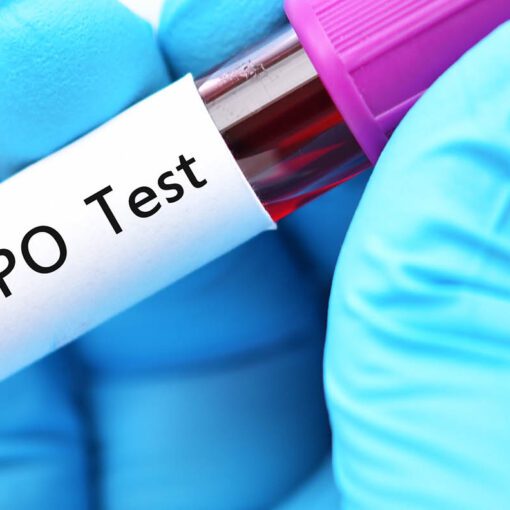Our body is a finely tuned machine with numerous components working in harmony, and one of the pivotal players in this system is the thyroid gland. Situated at the base of your neck, this butterfly-shaped organ may be small, but its influence is mighty. The thyroid gland is the maestro of metabolism, orchestrating a multitude of bodily functions through the hormones it secretes. These hormones—primarily thyroxine (T4) and triiodothyronine (T3)—regulate how the body uses energy, impacting everything from your heartbeat to how quickly you burn calories.
Imagine these hormones as messengers, speeding through the bloodstream, directing organs and tissues on how to operate. They determine the pace at which your body’s systems run, much like a conductor sets the tempo for an orchestra. However, it’s not just the physical aspects such as weight, temperature control, and energy levels that these hormones influence; they also play a critical role in the realm of mental health.
The Two-Way Street: Thyroid Health and Mental Well-Being
The connection between thyroid health and the mind is a two-way street; imbalances in thyroid function can lead to mental health challenges, and vice versa. Excesses or deficits in thyroid hormone levels can disrupt the equilibrium of chemical messengers in the brain, known as neurotransmitters. This disruption can result in a cascade of effects on mood, cognition, and overall psychological well-being.
For many individuals, the first hints of a thyroid problem may not manifest through physical symptoms, but rather through changes in their emotional state or thought processes. It’s not uncommon for someone with an undiagnosed thyroid condition to grapple with anxiety, mood swings, or memory lapses before any traditional signs of thyroid dysfunction surface. Given that these symptoms are also characteristic of mental health conditions, it can create a diagnostic conundrum for both patients and healthcare professionals.
Thyroid Hormones: Hyperthyroidism and Mental Health
The dance of hormones within our bodies is intricate, and when the thyroid enters a state of hyperactivity—known as hyperthyroidism—the effects on mental health can be as profound as they are surprising. A surplus of thyroid hormones circulating in the blood can turn up the heat on the body’s metabolism, leading to a flurry of symptoms that extend beyond the physical.
A Symphony of Symptoms: The Mental Impact of an Overactive Thyroid
People with hyperthyroidism often report feeling ‘on edge’. It’s as if their entire system is in overdrive, and this can lead to an array of psychological effects. One of the most common symptoms is anxiety, which is no surprise given that an overactive thyroid can mimic the body’s natural response to danger, flooding it with adrenaline.
Anxiety might manifest in several ways: some individuals may feel a persistent sense of nervousness without any apparent cause, others might experience panic attacks—sudden, intense surges of fear and discomfort that can feel overwhelming. For Maria, a 35-year-old teacher, her hyperthyroidism meant her usual calm demeanor was replaced by a feeling of constant apprehension that something terrible was going to happen, even when there was no real threat.
Alongside anxiety, irritability is another symptom that can strain personal relationships. People with hyperthyroidism may find themselves snapping at loved ones over trivial matters, a change that can be confusing and distressing to all involved. John, a normally easy-going father of two, found that his short fuse during a hyperthyroid phase led to regrettable outbursts that were out of character.
Another critical aspect of mental health affected by hyperthyroidism is sleep. Difficulty falling asleep or staying asleep can stem from both the physical sensations of an accelerated heart rate and the mental unrest that accompanies this condition. Lack of sleep, in turn, exacerbates mood issues and can reduce cognitive function. For example, Emily, who battled with hyperthyroidism for years, recounts her frustration at lying awake night after night, her mind racing, which left her exhausted and less able to focus at work the next day.
Moreover, mood swings can also occur, where individuals may go from feeling up and energetic to suddenly feeling emotionally depleted. These rapid shifts can be disorienting and can make it difficult for the individual and their loved ones to understand what is happening.
The Cognitive Conundrum: When Your Mind Doesn’t Keep Pace
Hyperthyroidism doesn’t only impact emotions; it can also cloud cognition. Sufferers may notice that they have trouble concentrating or feel that they’re living in a mental fog. For Rachel, a software developer with hyperthyroidism, the concentration required for coding became a struggle, as she would lose her train of thought mid-task—a phenomenon she had never experienced before her diagnosis.
Memory can also take a hit. It may be harder to recall names, facts, or events, a symptom that can cause considerable anxiety by itself. This was the case for Alex, a graduate student, who began forgetting important dates and deadlines, which was particularly troubling given his previously sharp memory.
When Hyperthyroidism Overflows Into Extreme Mental Health Conditions
While less common, severe psychiatric symptoms can also emerge in the wake of unchecked hyperthyroidism. Instances of mania characterized by extremely high energy levels, a reduced need for sleep, and sometimes delusions or hallucinations can be particularly alarming. In rare cases, untreated hyperthyroidism may contribute to the development of psychosis, where an individual loses touch with reality.
Elderly individuals may experience a different spectrum of symptoms. In this population, hyperthyroidism can sometimes be misinterpreted as dementia because of the presenting cognitive impairment and behavioral changes. This adds a layer of complexity to the diagnosis and management of hyperthyroidism in older adults.
The real-world implications of these mental health symptoms are far-reaching. They can disrupt everyday activities, impact work performance, and strain personal relationships. Recognizing these symptoms is crucial not only for managing hyperthyroidism but also for safeguarding one’s mental health.
Addressing the symptoms of hyperthyroidism necessitates a partnership between patients and healthcare providers to monitor the condition closely and adjust treatment as needed. It is also important for individuals to seek support systems, whether in the form of therapy, support groups, or understanding from family and friends, to navigate the turbulent waters of hyperthyroidism and maintain mental well-being.
In the whirlwind of symptoms that hyperthyroidism presents, it is essential to remember that mental health symptoms are not merely a byproduct but are central to the condition itself. By giving due attention to these symptoms, individuals can better manage their condition and preserve their quality of life. Moving forward, we will shift our attention to the opposite end of the thyroid spectrum—hypothyroidism—and explore how a sluggish thyroid can equally disturb mental equanimity and cognitive prowess.
Thyroid Hormones: Hypothyroidism and Mental Health
Hypothyroidism: A Closer Look at the Underactive Thyroid and Mental Health
Hypothyroidism occurs when the thyroid gland, a butterfly-shaped organ nestled in the front of your neck, does not produce enough thyroid hormone. This hormone is pivotal to the body’s metabolism, growth, and development and also plays an instrumental role in the maintenance of mental health.
Imagine your body’s metabolism as a gentle flame; thyroid hormones act as the fuel to keep it burning at just the right intensity. Hypothyroidism, however, is like the fuel running low; the metabolic flame dims, and bodily functions slow down. This reduction in metabolic rate can have diverse and profound effects on mental health.
Mental Health Symptoms in Hypothyroidism
Individuals with hypothyroidism may experience a decline in cognitive functions. They might find it challenging to focus, process information, or remember everyday details. These cognitive symptoms often contribute to feelings of mental sluggishness or “brain fog,” where tasks that were once simple become laborious and time-consuming.
Beyond cognitive difficulties, mood disturbances are common in hypothyroid patients. Depressive symptoms are among the most prevalent mental health issues associated with hypothyroidism. Patients often report feeling downcast, lacking the energy or motivation to engage in activities they previously enjoyed. A pervasive sadness can envelop their daily existence, making joy and contentment feel out of reach.
In stark contrast to the anxiety and irritability that accompany hyperthyroidism, the emotional landscape of hypothyroidism is often colored by an overwhelming sense of fatigue and apathy. This difference is crucial to understanding the distinct psychological profiles of thyroid dysfunctions. For instance, while a person with hyperthyroidism might struggle to fall asleep due to a racing mind and palpitations, someone with hypothyroidism may find themselves sleeping excessively, yet never feeling refreshed.
Weight gain is another common symptom due to the decreased metabolic rate in hypothyroidism, and it can further exacerbate psychological distress. The additional pounds can lead to poor self-image and exacerbate depressive symptoms, trapping individuals in a cycle of low mood and inactivity, which can lead to further weight gain.
An important consideration is that, unlike hyperthyroidism, where psychiatric symptoms can present abruptly and intensely, the symptoms of hypothyroidism tend to develop gradually. They can be so subtle that individuals may not recognize them as signs of a medical condition, often attributing them to stress or aging.
The Contrast Between Hypo- and Hyperthyroidism
When comparing hypothyroidism to its counterpart, hyperthyroidism, it’s like examining two ends of a spectrum. Hyperthyroidism turns up the dial on your body’s processes, leading to a state of overdrive. In contrast, hypothyroidism turns the dial down, causing a noticeable slowdown.
Both disorders have the potential to disrupt mental equilibrium, but they do so in opposite ways. Where hyperthyroidism might bring on sudden and intense anxiety, hypothyroidism gradually ushers in depression. The quick temper and irritability often seen in hyperthyroidism are replaced by a general lack of responsiveness or blunted emotional reactions in hypothyroidism.
Another contrast lies in the treatment outcomes for these conditions. Hyperthyroidism can often be addressed rapidly, with treatments that quickly reduce hormone levels and alleviate symptoms. Hypothyroidism, on the other hand, often requires a longer period of treatment adjustment to find the correct hormone replacement dosage, with mental health symptoms slowly lifting as hormone levels stabilize.
Holistic Understanding of Thyroid Disorders
While the focus here is on the mental health aspects of hypothyroidism, it is essential to recognize that these symptoms do not occur in isolation. The interconnectedness of physical and mental health is particularly relevant in thyroid disorders. The same thyroid hormone insufficiency that leads to fatigue and depression can also cause physical symptoms like hair loss, constipation, and cold intolerance. Appreciating this interconnectedness helps individuals and healthcare providers take a more comprehensive approach to treatment.
Understanding the full spectrum of thyroid dysfunctions, from hyperthyroidism to hypothyroidism, sheds light on how the thyroid’s seemingly singular function—regulating metabolism—has far-reaching implications for our mental state. Whether the thyroid is in overdrive or underperforming, its impact on the mind is significant and underscores the importance of thyroid health in overall well-being.
Reference links:
Psychological symptoms and thyroid disorders – British Thyroid Foundation
Neuropsychiatric Manifestations of Thyroid Diseases – PubMed Central (PMC)






